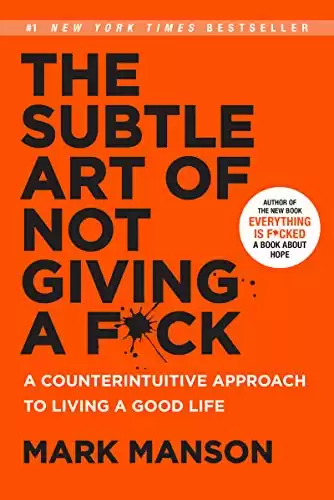How To Stop People Pleasing: 9 Ways To Prioritize Your Needs
So, you want to learn how to stop people-pleasing so you can embrace and advocate for your own needs.
You’re in the right place!
If you wrestle with the need – or disease – to people please (a behavioral pattern common in women, and some meny, in patriarchal societies especially), this article will help you kick the habit to the curb.
As our society continues to evolve, we’re becoming more aware of how toxic this characteristic can be.
When you people-please, the primary goal is to placate or satisfy another person, usually to avoid an undesirable or uncomfortable reaction.
The instinct occurs as a result of a particular upbringing, social, or home environment where keeping others happy resulted in more peace, love, or acceptance.
So, you’ve likely become an expert at identifying what upsets people and go to great lengths to avoid those situations at all costs.
The upside to being a people pleser? A ton of empathy and intuition. You’re likely someone who likes to make others feel comfortable and welcomed.
The downside? To start, you almost always end up sacrificing your needs. Not so great.
If you’re ready to break free from the cycle of people-pleasing, read on for nine effective ways to overcome the inherited habit that has been holding you back.

9 Steps To Stop People Pleasing
1. Know Your Worth
Habitual people-pleasers, knowingly or not, rarely put themselves first. It’s time to break free from this pattern and reestablish your sense of value and worth as a human being.
You have rights, needs, desires, and dreams that deserve to be shared and also supported!
These aspects of your life are not meant to be overlooked or overshadowed by the constant desire to please others.
Repeating a simple but affirming empowerment mantra like “my needs matter” can be a productive baby step toward challenging old people-pleasing habits. Find a mantra that works best for you and commit to it for a week.
You are worthy of pursuing the life you desire and deserve!
2. Explore The Origin
Take a trip down memory lane and revisit your childhood and adolescent years. You can do this by engaging in the transformative practice of journaling, allowing your thoughts and emotions to flow freely.
If you look closely, you might see a few common themes that indicate where you picked up your need to people please.
Did you experience:
- A chaotic home life?
- Critical or controlling family members?
- Volatile or unhealthy relationships?
- Shame, fear, or anxious feedback loops?
- High expectations to be seen but not heard?
- A traditional or male-dominated environment?
Gaining a deeper understanding of your past, including the recognition that people-pleasing tendencies are created over time and in response to experiences, will empower you.
Then, you can begin to reevaluate your behavior and pursue a path of personal growth.
3. Change Your Perspective
Remember, pleasing people is all about appealing to the desires or needs of someone else in the effort to make them comfortable.
Often, this comes at the expense of your mental and emotional health.
People pleasing is not the same thing as being polite, cordial, collaborative, or considerate.
It’s not a healthy or reasonable expectation to believe that a situation’s outcome or a person’s reaction relies on your agreeability.
Nor is it a requirement that a woman, by default, sacrifice her needs to meet the needs of her partner, family, or friends. By challenging your perspective (and societal expectations), you’ll feel more comfortable prioritizing your wellbeing.
4. Identify Opportunities To Change
Once you have a good idea of where your people-pleasing instincts came from, pay attention to moments you’re most likely to indulge in them.
It’s important to be mindful of the specific situations or triggers that tend to activate these behaviors.
Do you silence your needs…
- at home?
- in the workplace?
- around strangers?
- with your friends or in social settings?
- in relationships?
Look closely into the dynamics at play in the above situations.
Often, there are small changes you can make to reassert your personal power (like setting boundaries in your relationships) and build more confidence.
5. Get Reacquainted With Your Needs
When you find that people-pleasing has served as a significant strategy for keeping the peace, gaining love, affection, or praise, there’s an opportunity to discover more about your needs.
At some point, you lost sight of the reality that your needs matter just as much as anyone else’s.
Your desire not to rock the boat has allowed others to benefit from your silence or sacrifice. It’s time to work on believing that your needs are inarguably as important as anyone else’s.
Start by exploring your needs in your intimate relationships and auditing how often they’re met.
6. Prioritize Your Needs (and Desires)
The moment you start reassigning value and worth to yourself and believing your needs are important, is the time to dig in and invest with all you have.
Not only are your needs important, they are the most important!
You are the owner and manager of the mind and soul that reside in your body. As her manager, it’s up to you to make sure she has what she needs.
Dying for more alone time at home? Ask for it.
Don’t want to speak to a stranger on the bus? Let them know.
Need accommodations at work? Start the conversation.
Prioritizing your needs and desires is an essential step towards fulfilled, empowered life that aligns with your vision. The more frequently you consider your needs, the easier it will be to stop people pleasing.
7. Relieve Yourself From The Burden
To make this internal work stick, you’ve got to accept that you are not responsible for anyone’s feelings, words, actions, or reactions.
Ever.
Regardless of what you’ve been modeled, taught, or told.
You are only responsible for your feelings, words, and actions.
Imagine there is a physical cord attaching your body to the body of a person you often attempt to please. On one end of the cord is a negative reaction or cue that you often try to avoid encountering.
The reaction, or even the threat of it, reverberates down the cord and hits your body. That vibration makes you second-guess yourself, hesitate, ignore your instincts, or sacrifice something.
To avoid that reaction, you continue to keep the peace even if it means silencing your needs.
You don’t need to live with this cord anymore: when you learn to stop people pleasing, the cord weakens.
And it’s an amazing feeling when it does!
8. Consider What You Sacrifice
As you work through the tips of this article, you might stir up a lot of buried emotions.
It can be frustrating, and painful at times, to think back on your history of people-pleasing and its origin. Especially since you’re still moving through it!
Urge yourself to push through the discomfort and take it a step further. (After all, that’s where the real growth happens).
Ask yourself these questions:
- How has people-pleasing held you back or silenced you?
- What has it cost you to make someone else comfortable at your expense?
- Are these sacrifices ones you’d feel comfortable making for the rest of your life?
Keep your answers in mind as motivation to keep evolving into your new level of empowerment.
9. Witness Your Life Change
Changing a lifelong habit takes time, but it is achievable.
When you stop people pleasing, you’ll start to see results – and rewards – each time you step out of your comfort zone.
Move toward the positive feedback you receive.
Embrace your value and worth, honor your needs, and empower yourself to confidently ask for the things that will bring you genuine fulfillment.
You will be a happier, healthier family and community member when you have the tools to thrive.
Own the mess of the journey, but don’t give up on yourself.
You got this!
*Female Mind Unleashed uses affiliate links to earn small commissions on qualified purchases – at no cost to you.*














